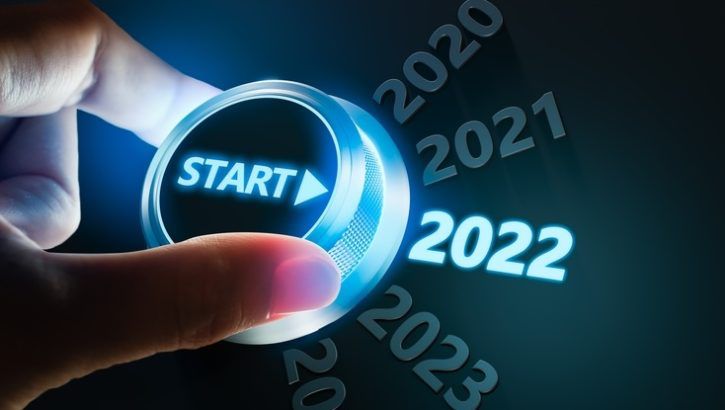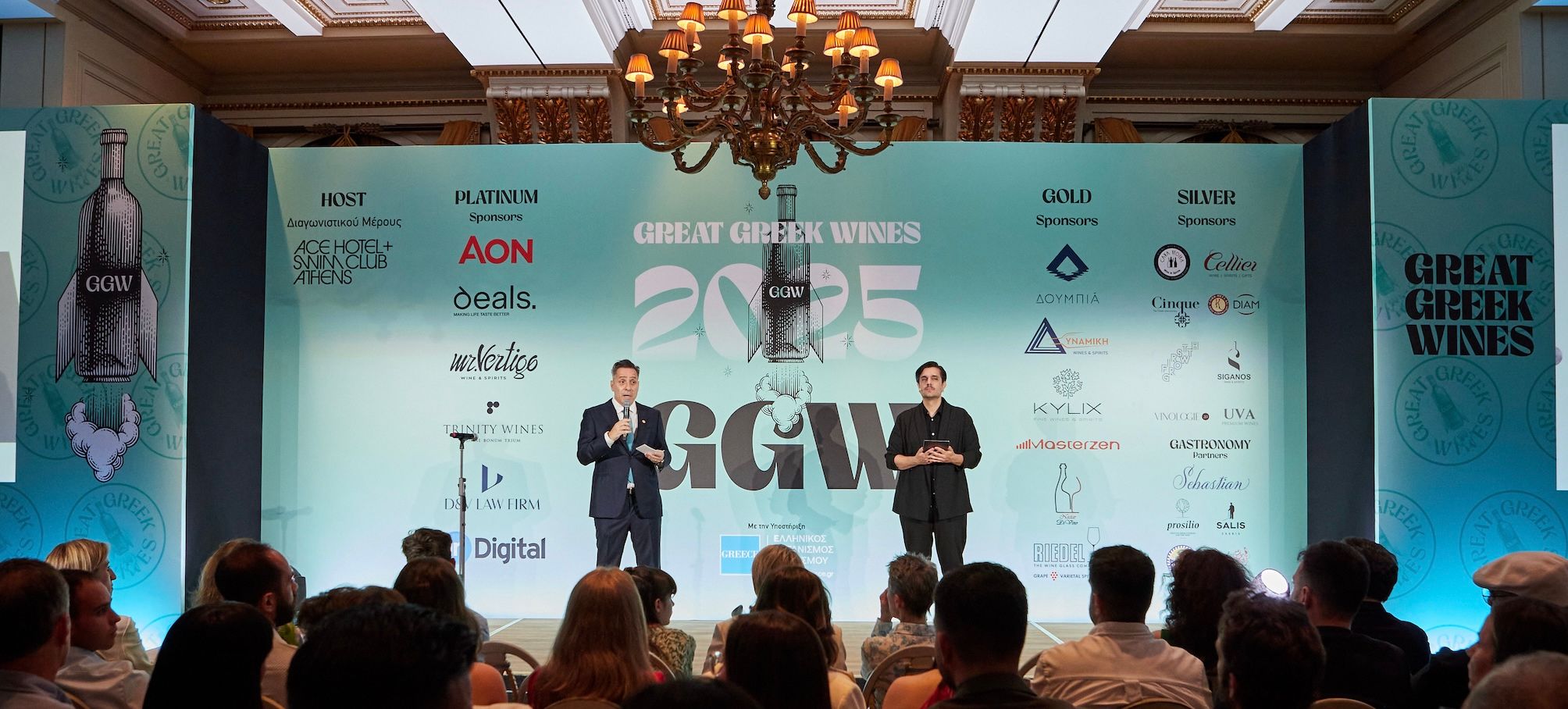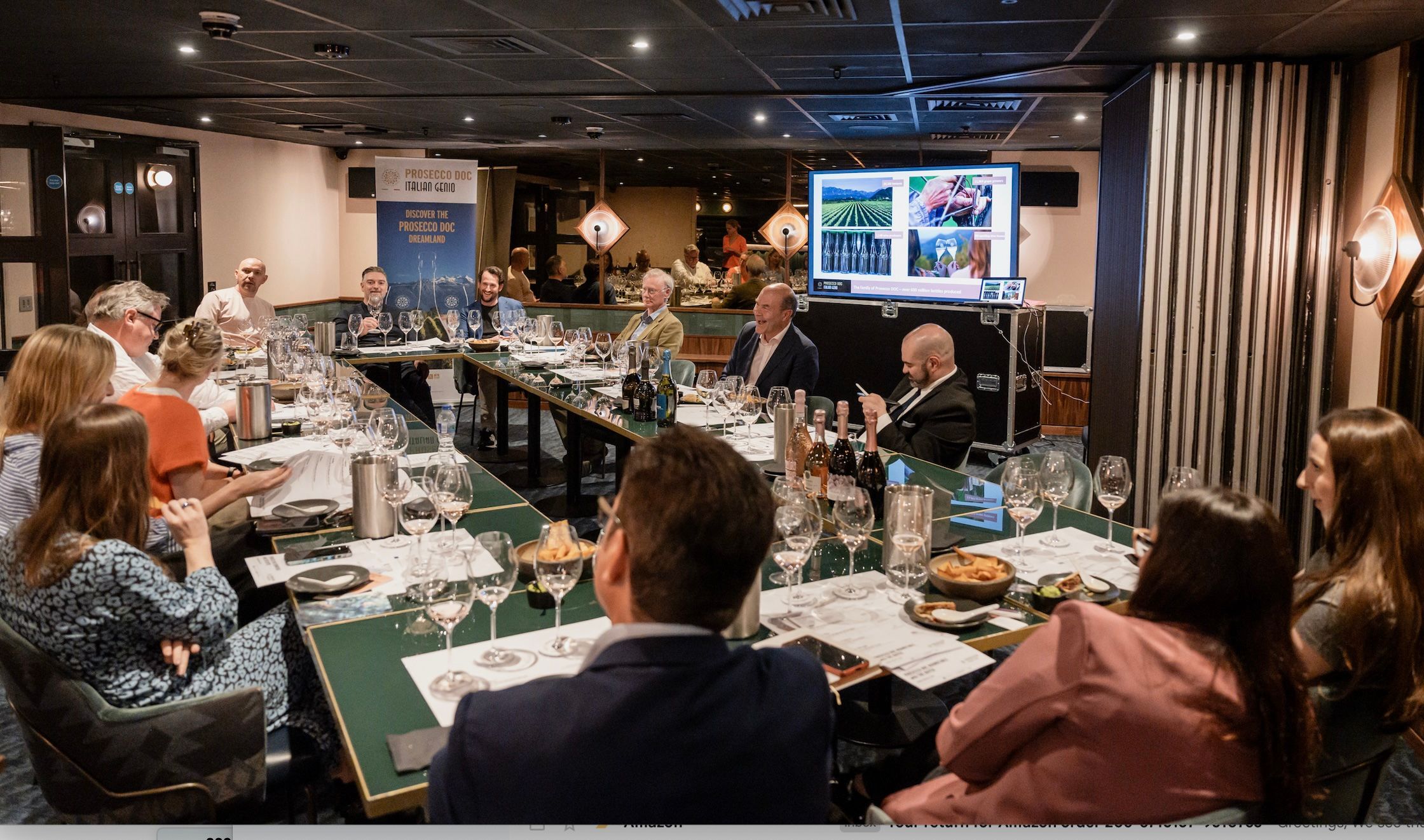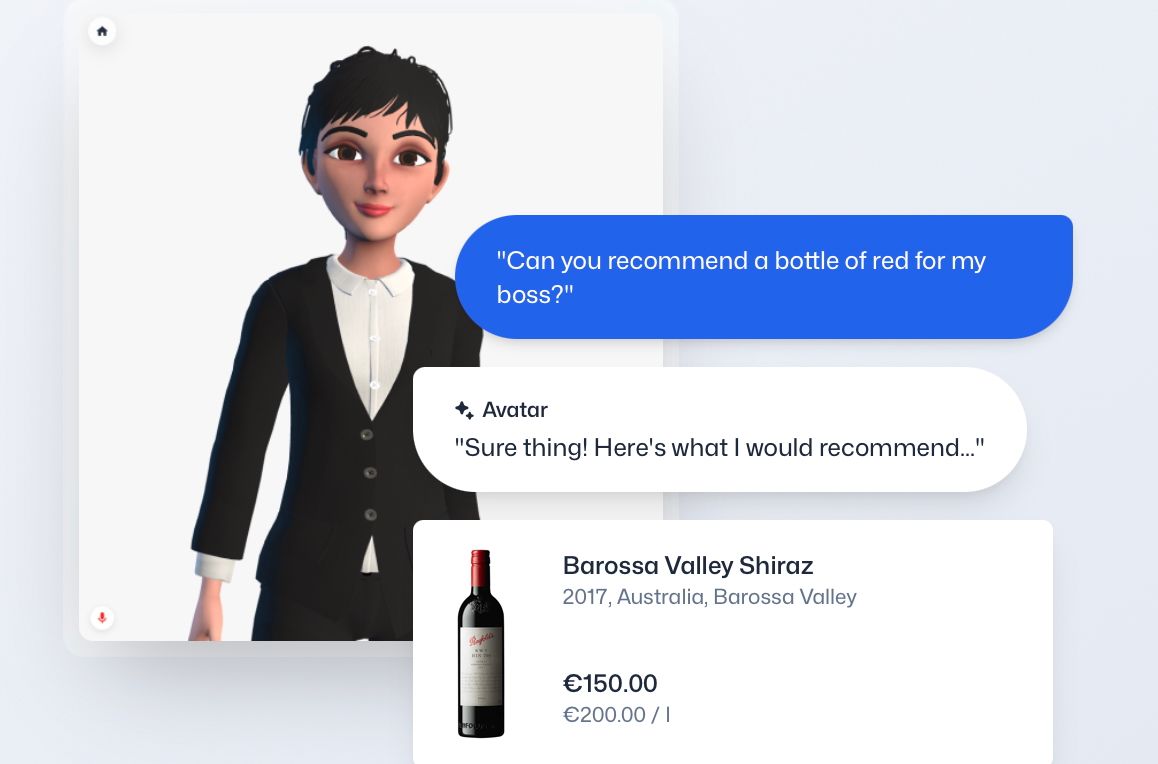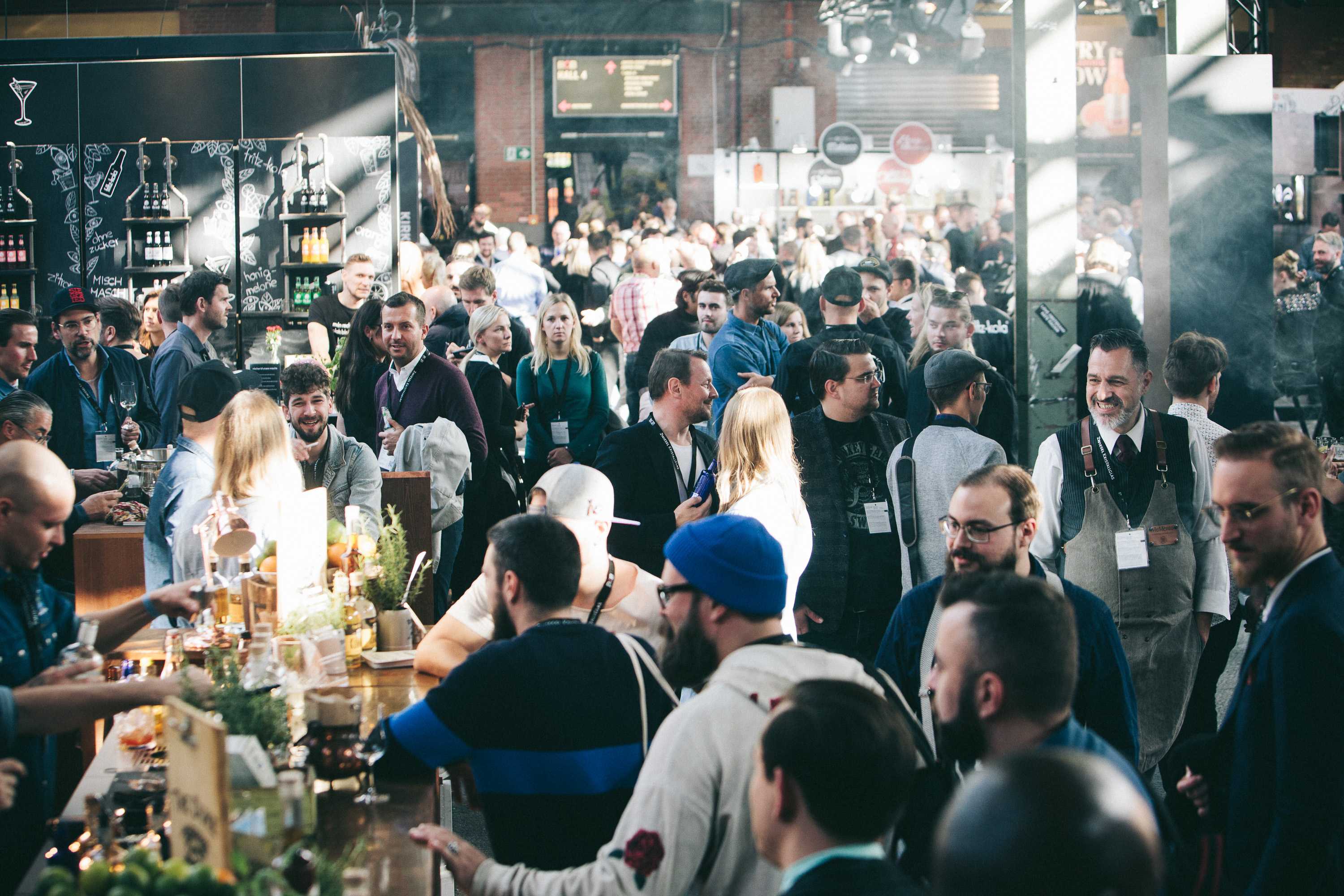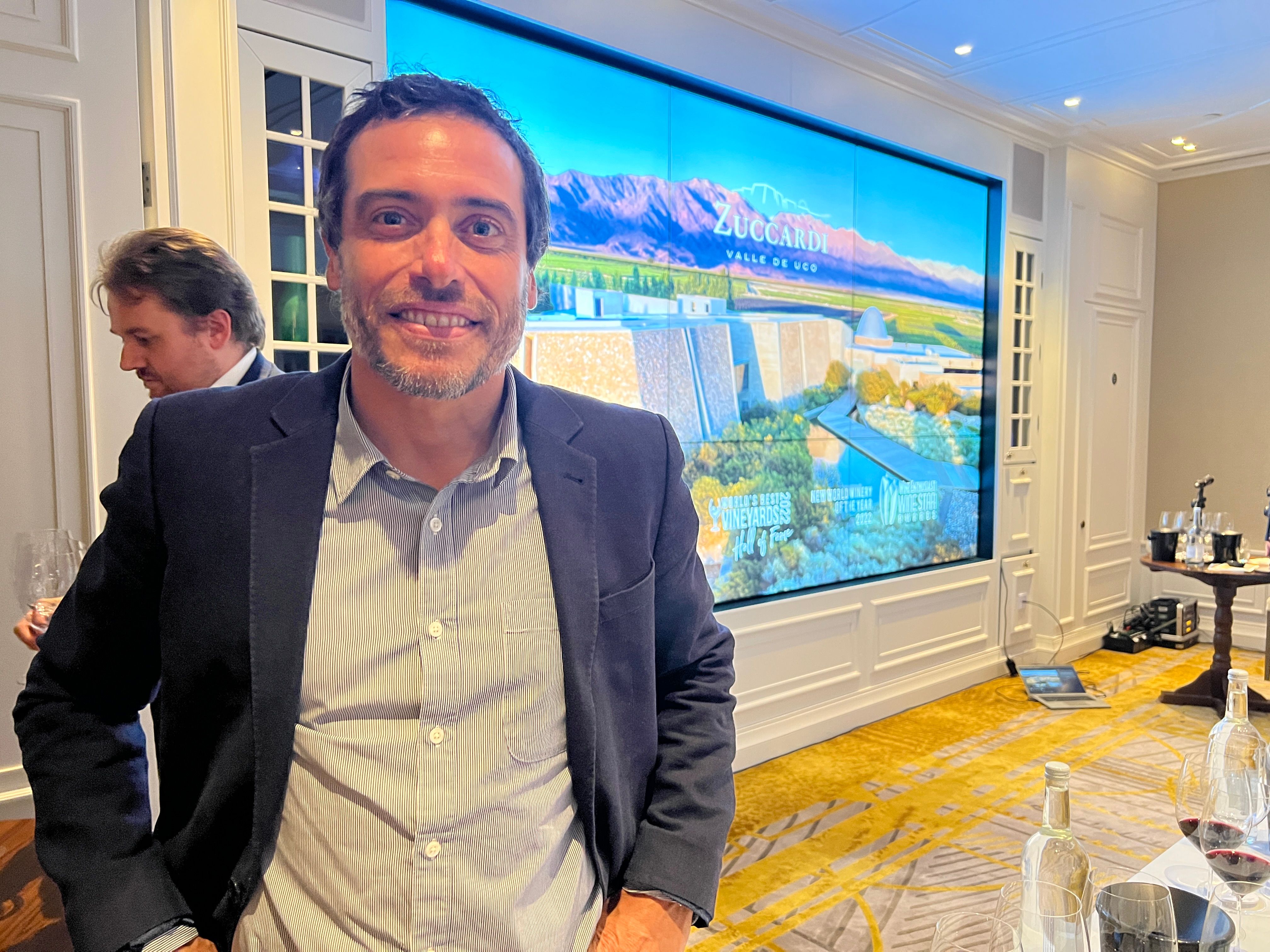The drinks, retail and hospitality sectors have come together like never before during Covid-19 and we need to keep that united spirit when tackling some of the bigger, long term issues that we all need to face up to.
Diversity and inclusion: what are you going to do?
It’s somewhat ironic that at a time when ‘we’ as an industry have spent less time together due to Covid-19, lockdowns and cancelled events, conferences and trade shows that we have actually become closer and more aware of each others personal needs and concerns over the last year.
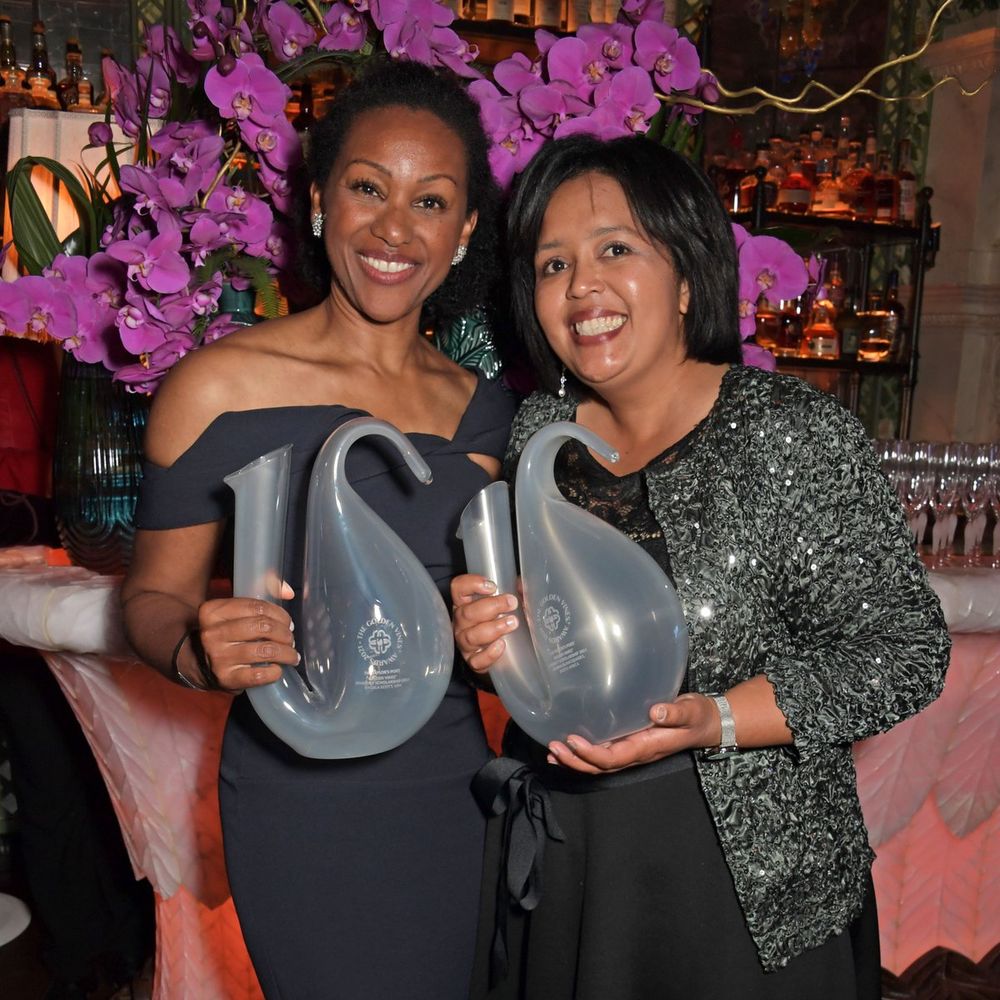
2021 saw the launch of the Golden Vines Diversity scheme including its major scholarship awards for MW students – here are Angela Scott and Dr Erna Blancquaert receiving their awards at a ceremony in the autumn
In particular the issue of diversity and inclusion, or more to the point lack of it, in the wider drinks industry has been very much top of the agenda throughout the last 12 months, driven, in part, by the national debate also taking place around the need for greater D&I in society.
Crucially 2021 has seen the launch of initiatives that have given this ‘debate’ a platform on which to drive real change.
Building a community
First came The Drinks Community, a new initiative from The Drinks Trust, that has created a new way for the drinks industry to really demonstrate just how collective and collegiate it is.
In its own words The Drinks Community is “the platform dedicated to creating connection and opportunity through upskilling, training, networking and mentoring.” It adds: “A peer-to-peer support, careers and vocational space for our vibrant industry, the Drinks Community will be a space to share knowledge; it will act as the bridge between disciplines, specialisms and product channels. Our ambition is to pool the combined experience of our sector, encourage the sharing of ideas and insight and to help grow and diversify the industry as a whole.”
Central to that has been its mentorship programme whereby individuals, across all channels of the trade, have given up their time to work with those who are looking for support, advice and a way to further their careers in the sector. It also recognises that the pandemic – and Brexit – have hit the drinks industry particularly badly, with a major loss of talent and this is a way of bringing people together to share their skills and experience for the benefit of of others. You can read Millie Milliken’s account on what the Drinks Community can do for you on The Buyer here.
Equal Measures
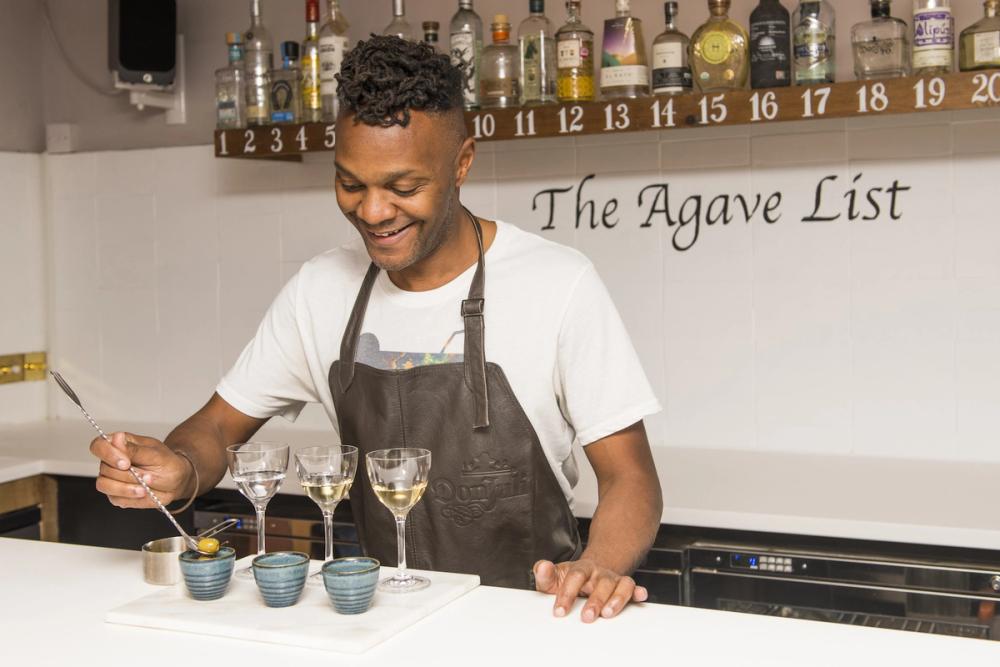
Deano Moncrieffe is using his experiences running his own bar – Hacha – to try and help more people from diverse backgrounds find a career in the drinks and bar sectors
The Equal Measures initiative set up by bar entrepreneur Deano Moncrieffe in 2020 to give a voice and to help promote diversity and inclusion in the drinks and bar sector was also able to widen its services in 2021 to offer mentorship and educational courses thanks to a link up with The Drinks Trust and specialist spirits education provider, the Mixing Class, founded by Hannah Lanfear.
Together they have started the Equal Measures Education and Mentorship Project that aims to offer underrepresented minorities the opportunity to get their feet on the ladder of the drinks industry by connecting them with the right people who can help advise and inspire them about a career in drinks, as well as provide the training and support they might need. They also want to challenge what they see as they as “the biases of existing hiring practices in the hospitality industry”.
The Drink’s Trust hopes to identify the right people coming to the charity that would benefit from the support that Equal Measures and the Mixing Class can offer. It means the Drinks Trust can go beyond offering financial support and give people a practical route back into employment and open up new opportunities to them.
“We can all do with someone to talk to, but particularly at the start of our careers,” adds Lanfear. “Someone who can give us friendly advice.”
Moncrieffe sees successful mentoring as working in two distinct ways. It helps empower the individual, but it is equally important for the employer as well. “We are not just trying to enrich the individual, but also the place where they work as well,” he says.
Lucy Marcuson at the Drinks Trust adds: “We will see a lot more businesses training their teams and introducing D&I initiatives. There has in the past been a real anxiety around the right way to approach D&I. Now they can work with Equal Measures for the training and support they need. That’s when we saw what Deano and Hannah were doing and were so keen to get involved. The Drinks Trust is all about up-skilling and supporting people in different ways that we can.”
- You can read a profile on what Equal Measures does and its goals for 2022 on The Buyer in the new year.
Taking real action on climate change
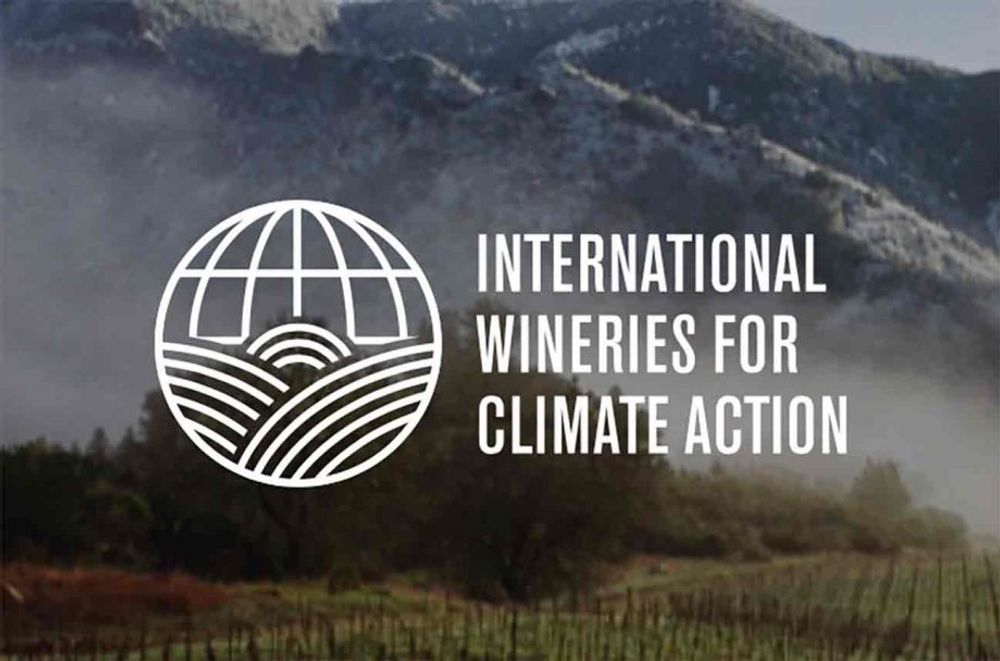
The IWCA wants to give wineries the help and support and a roadmap to make effective climate action changes
The wine industry was urged, in no uncertain terms, in 2021 to wake up to its “climate change emergency” and to collectively and individually do more to run more sustainable businesses by the The International Wineries for Climate Action (IWCA) group, founded by Familia Torres in Spain and the Jackson Family in California.
The group was not started in 2021 but this was the year it made a real breakthrough by becoming the only agriculturally focused body to be accepted into the United Nations Race to Zero campaign. It has given it the credibility and the position to use that influence to urge more producers to not only sign up to what it is doing, but to make personal pledges and steps of their own.
2022 is the year when the wine and wider drinks industry needs to stop talking and sitting on the fence on climate change and take real action. Stop making pledges but deliver real action.
The IWCA has got the bit between its teeth and is urging more producers to do the same. It hosted a joint press conference with the United Nations in the UK in October to coincide with the COP26 global climate change conference to set out what it believes needs to be done. The chance for Miguel Torres of Familia Torres, Rob Symington of Symington Family Estates to share a platform with the UN to get its key messages across.
Noticeably Fiona Macklin, part of the UN Race to Zero team, stressed how important it was to have such a high profile consumer product as wine as part of its wider attempts to get leaders from across industry sectors, cities, regions and investment bodies to work together to hit short, medium and long term carbon neutral goals.
Wine, she added, can “help bridge that gap” between the consumer and industry as they can relate to the people behind the bottle of wine they are drinking. “Wine can provide real leadership in this space,” she said. “It can play a critical role in the behavioural changes that consumers make.”

Rob Symington says wine producers need to measuring and producing real data to show the steps they are taking to tackle climate change
Symington said there was still very much a need for a “cultural change” to take place in many, particularly traditional, parts of the wine industry. “We are used to profit and loss, marketing and sales strategies and strategic plans. This is taking us outside our comfort zone in the wine trade,” he said.
The IWCA hopes to play its part by setting the examples, providing the benchmarks, and establishing the standards and protocols that wineries, big or small, can take. Measures that crucially will be supported by evidence and fact-based research that prove they work.
Symington said there were two key questions any wine producer serious about doing anything to combat climate change: Are you recording and analysing your end-to-end carbon footprint and emissions right through your own supply chain, including your suppliers and customers? Then how are you measuring that in a way that allows you to know and understand whether the changes you are making are having any credible impact.
If you are not doing those two things, side by side, then a lot of the steps being taken by producers are effectively negated, claimed Symington.
Yet only 10 producers have formally joined the IWCA. What’s stopping others doing so? Why are not major drinks companies being called out for their lack of public action on the issue?
Green Wine Future
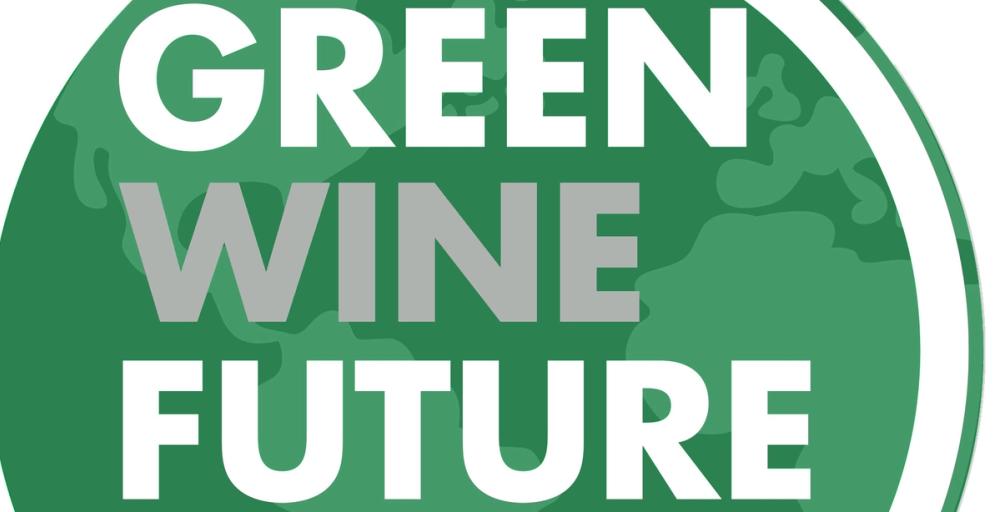
Green Wine Future will host different events around the world so that local wine industries can attend and not impact on their carbon footprint
2022 will see the inaugural Green Wine Future launched which claims to be “the largest and most ambitious environmental conference ever for wine” to look at how together we can tackle climate change. The event will take place across four days in May (23-26) and over four continents through a mixture of live events, conferences and talks, which delegates can also join online without having to travel the world to attend.
You can access the full programme here with conferences taking place in Chile, California (May 23), Portugal and South Africa (May 24), Spain and France (May 25) and New Zealand and Australia (May 26).
“People need to work together, drop their differences, share their knowledge and experience, and, as the saying goes, they need to put their money with their mouth is! It’s time to act and we cannot wait any longer,” is how event organiser Pancho Campo describes its goals.
The event will look to tackle a wide range of climate issues including: renewable energy; carbon sequestration; regenerative viticulture; sustainable wine tourism; water and hydric resources; agrochemicals; transportation and packing; oenology; winemaking; and the role of the consumer.
- You can find out more and buy tickets for the event here.
Keeping events, education and trading online
2021 was the year when the wine and spirits industry came into its own when providing online entertainment and education. Rather than sit on its hands and grumble it was not possible to hold large tastings, conferences and trade shows a whole host of event companies, generic bodies and individual businesses took matters into their own hands by launching an ever more innovative choice of online support services to keep events going – at least digitally at least.
Not only were they largely an enormous success they succeeded in bringing both the UK drinks industry together, but helped connect people all over the world bringing wine producers, distillers and brewers straight into the homes and businesses of the buyers and influencers they would normally only get to meet by travelling huge distances to do so.
Particular mention has to go to:
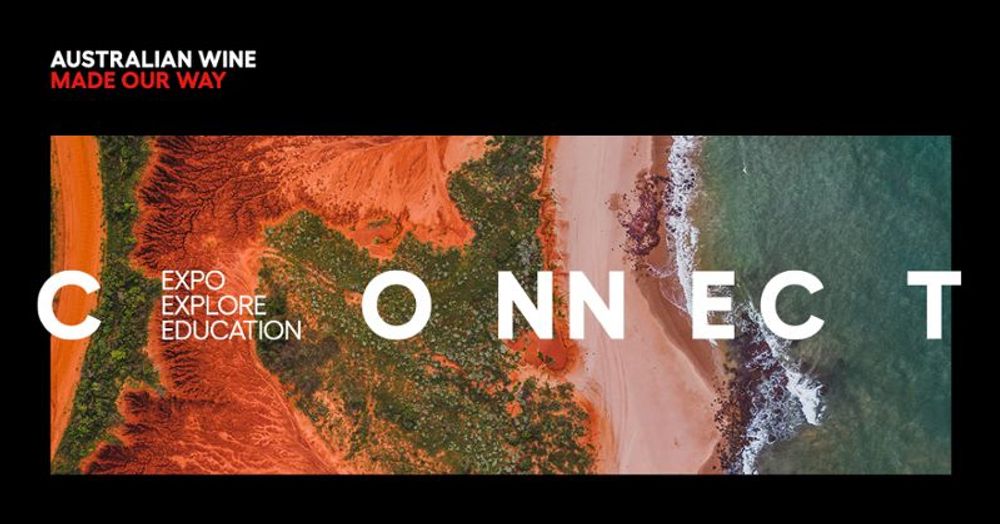
Wine Australia’s Connect platform has shown the way forward for wine generics and producers during travel restrictions
Wine Australia for its Connect platform that has provided an invaluable way for producers to continue to trade, sell and talk to its key buyers around the world. It has used a mixture of live events, tastings, seminars and recorded sessions to connect people and sees this as very much a long term initiative that is productive for both sides and crucially allows its winemakers and producers to carry on doing business and open up new markets at a time when they can’t travel due to Covid restrictions.
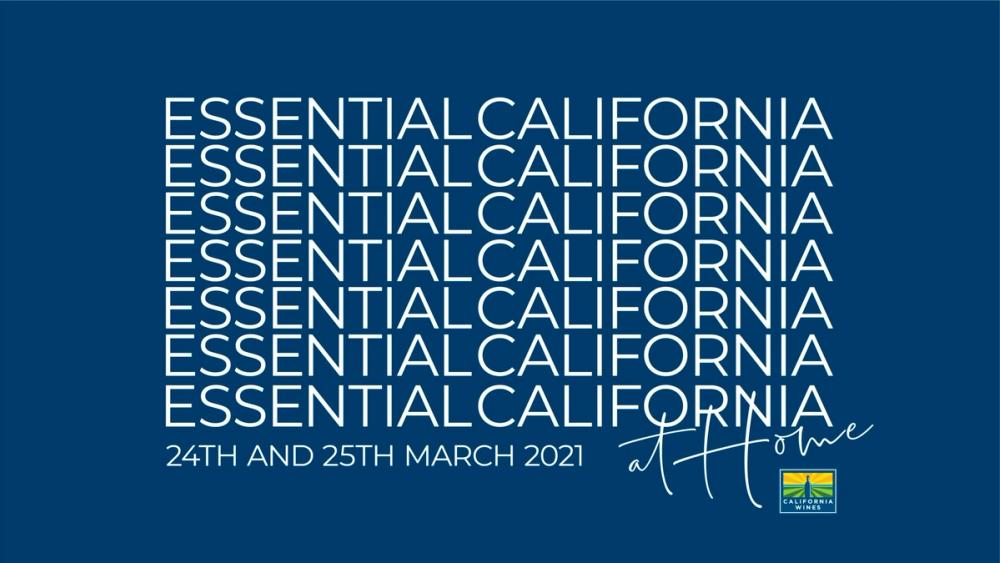
Essential California which was a series of online tastings and events organised by the California Wine Institute’s UK directors Justine McGovern and Damien Jackman that again was able to connect producers with buyers and importers through a series of bespoke online events, promotional and educational films and live masterclasses. Eight months in the making it also involved sending out over 5000 wine samples and was widely praised by buyers as a way to really focus their buying and tasting needs on what was most relevant to them.
There was also the Vinexposium online events organised by Wine Paris and Vinexpo that again brought education to the masses and made up, in part, for not being able to host an actual trade show.
The Italian wine2wine event showed the way forward for an hybrid event with its part live conference in Verona, supported by its digital platform that allowed you to follow events from wherever you were.
It will be interesting to see what happens in the future when we are able to travel and gather in large numbers again but hopefully these tasting platforms will continue. They are an excellent use of everyone’e time, cuts down on our travel and carbon footprint and have proven to be very effective in how they deliver their key messages, allowing the user to take part when they want and have potentially transformed what we expect from a wine or spirits event in the future.
- Read Part 1 of our what you need to pay attention to in 2022 series with Richard Siddle’s analysis of the metaverse here.
- Part 2 that focuses on the changes in trading and business practices we can see in 2022 is available to read here.
